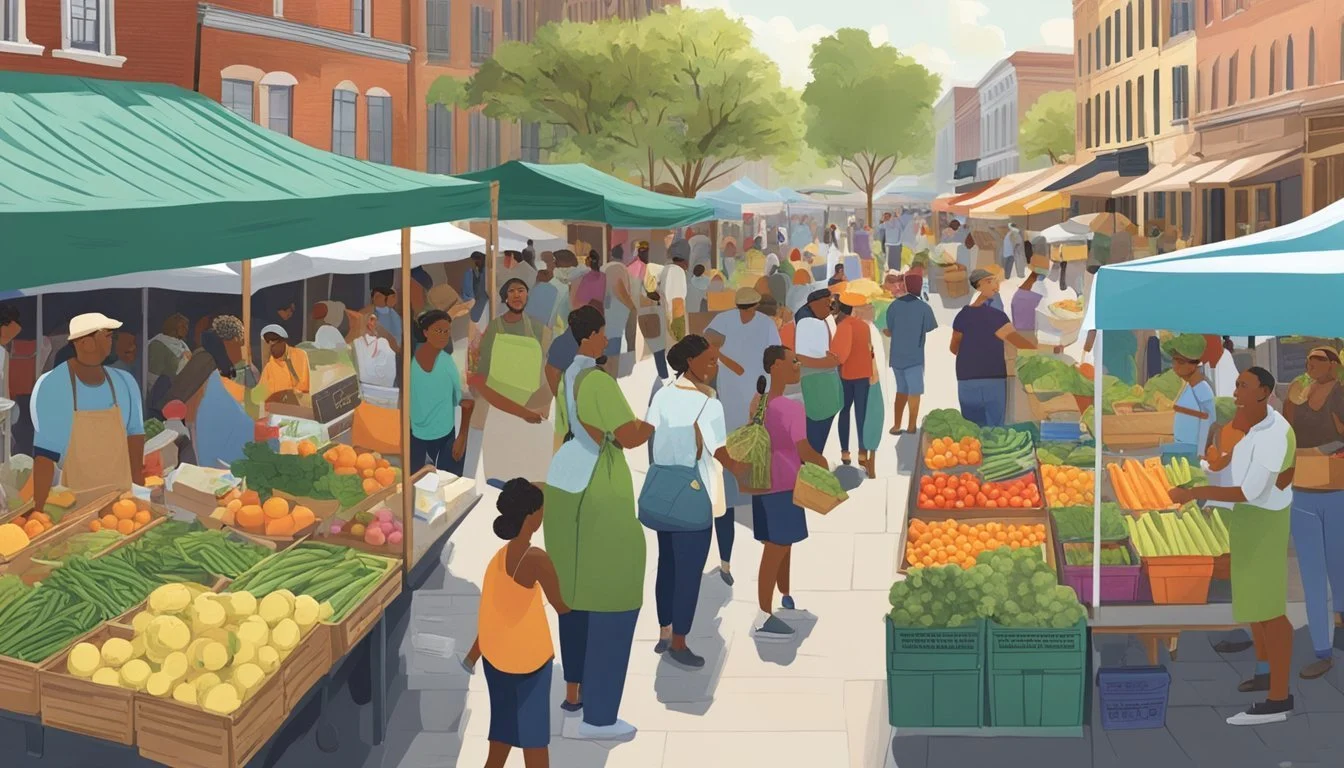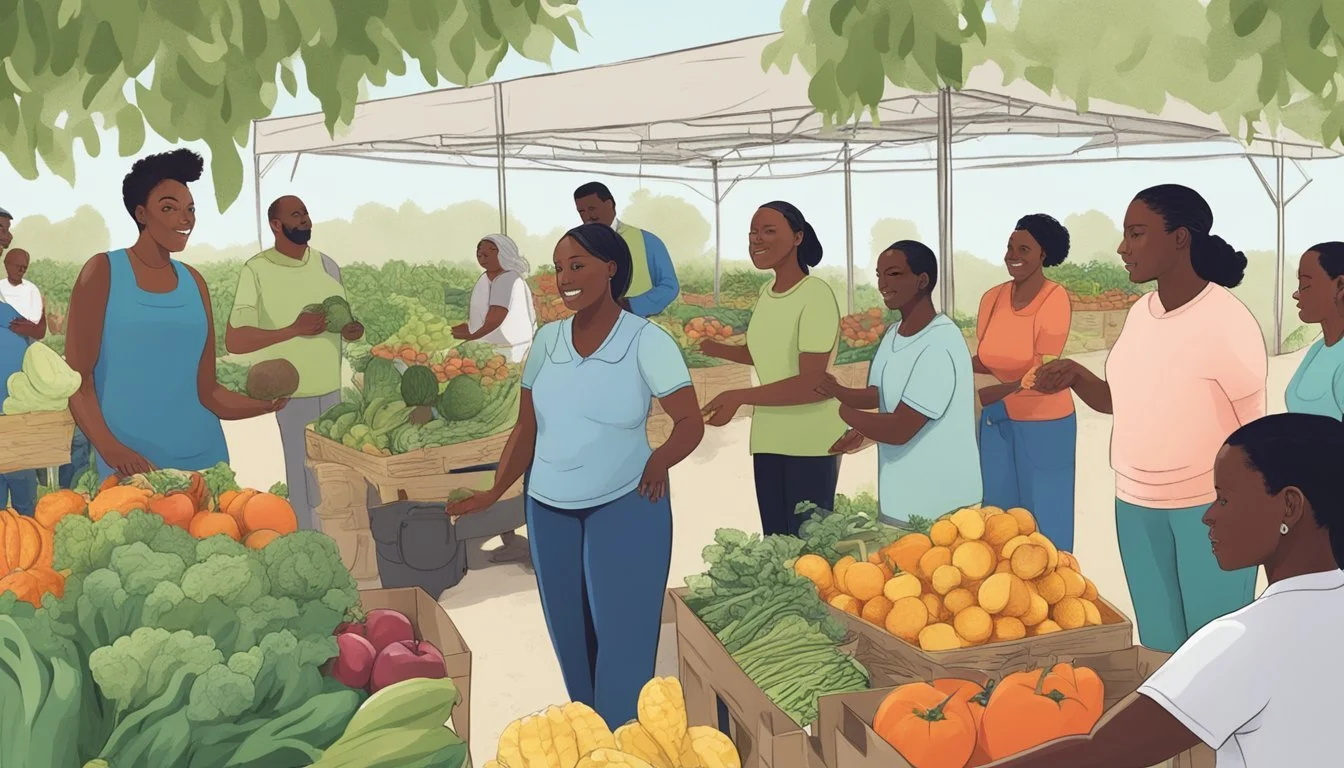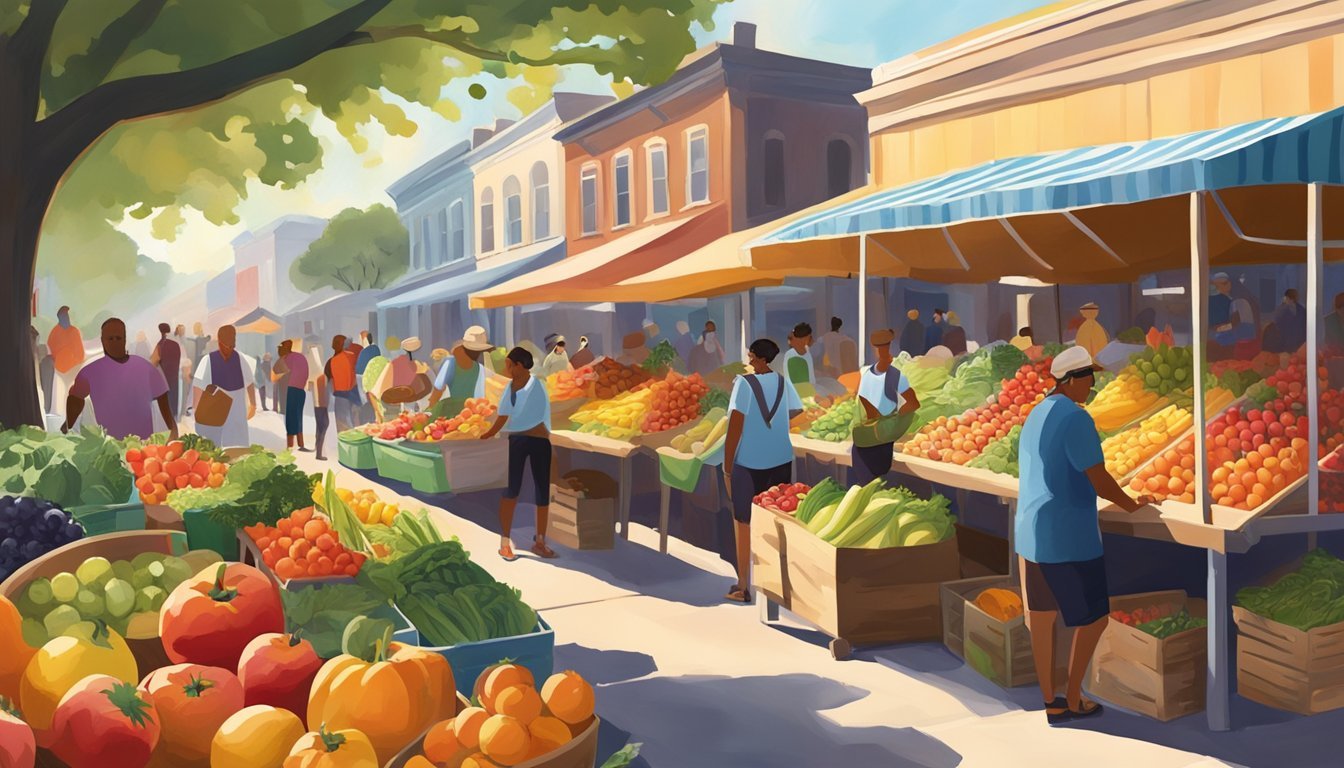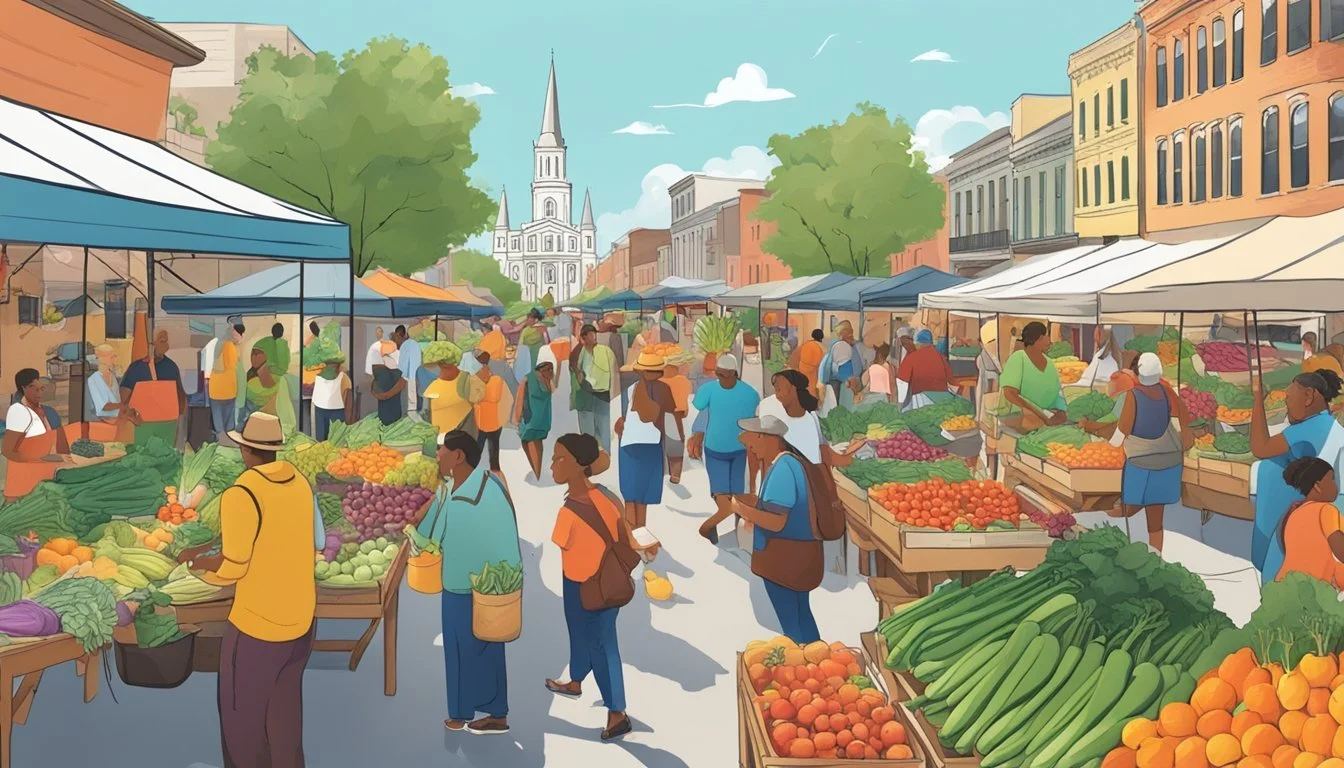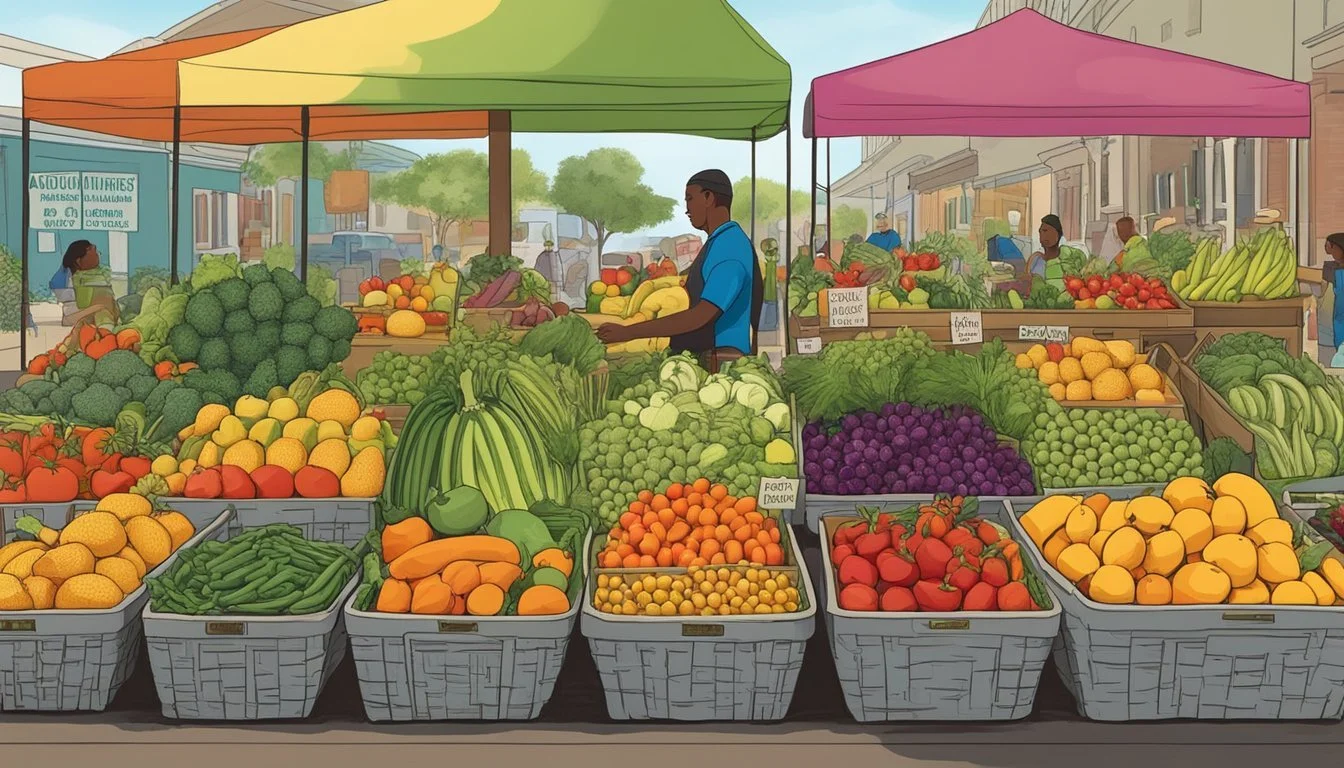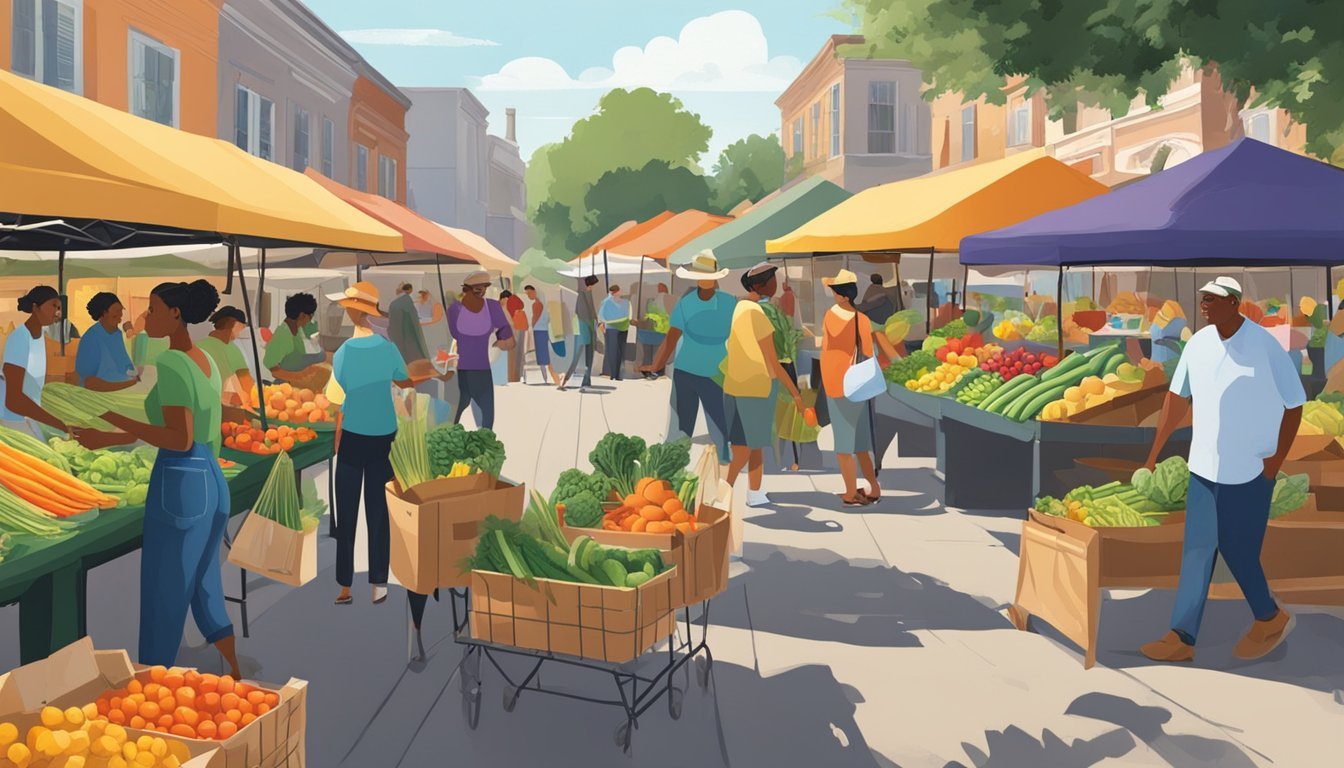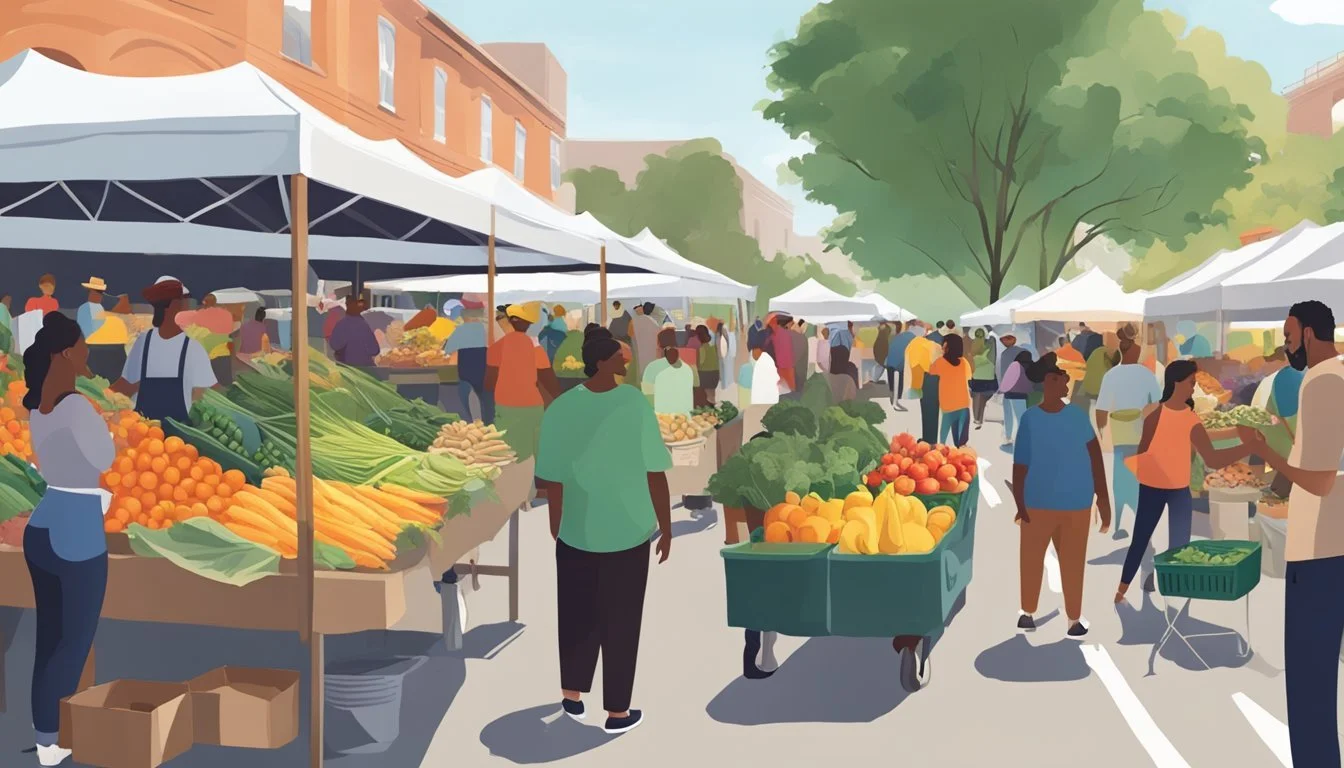Community Supported Agriculture (CSA) in New Orleans, LA
Embracing Local Food Movements
Community Supported Agriculture, commonly known as CSA, has taken root in the fertile cultural landscape of New Orleans, offering a sustainable and cooperative approach to farming and food distribution. In this partnership, residents support local farmers by purchasing shares of the harvest upfront, which in turn provides them with a regular supply of fresh, locally-grown produce. This system not only guarantees financial support for farmers but also fosters a direct connection between consumers and the source of their food, promoting a deeper understanding of agricultural processes and seasonality.
CSA programs in New Orleans reflect the city's commitment to blending tradition with innovation. Farms in and around the area offer various membership options, often including home delivery services, accommodating the needs of diverse communities. The act of sharing in both the bounty and the risks of farming strengthens community ties and supports a resilient local food system. By participating in CSAs, New Orleanians effectively contribute to the sustenance of small-scale farms and invest in the health and economy of their region.
The shape of CSAs in New Orleans varies, from urban farms nestled within the city limits to rural operations just a short drive away. Many of these initiatives not only provide fresh produce but also serve as educational platforms, emphasizing eco-friendly practices and the importance of local agriculture. These programs continue to garner interest as consumers increasingly value transparency in food production and seek alternatives to mainstream grocery sources, particularly when disruptions in the supply chain arise. Through CSA memberships, New Orleans residents play a crucial role in preserving local farming traditions while also ensuring their own access to nutritious and seasonal foods.
Understanding CSA
Community Supported Agriculture (CSA) is a model that connects residents of New Orleans with fresh, locally-sourced, and seasonal produce through a membership-based subscription. This approach not only fosters a sense of community but also empowers education on sustainable practices among its members.
CSA Concept
CSA operates on a simple but powerful principle: consumers buy "shares" of a farm's harvest in advance. These shares typically consist of a weekly or bi-weekly box of vegetables and sometimes include other farm products. This model provides local farmers with upfront capital, securing financial support throughout the growing season. Members, in turn, receive fresh produce directly from their local farms, establishing a direct relationship between themselves and the source of their food.
History of CSA in New Orleans
In New Orleans, the CSA model has been embraced as a means to connect the city's rich culinary culture with its burgeoning agricultural community. Pioneering farms have built strong networks with residents, enhancing the local food landscape and resilience. The legacy of CSA in New Orleans is one of a community coming together to support and uplift local farmers, ensuring quality produce for their region.
Benefits of Joining a CSA
Joining a CSA comes with a myriad of benefits:
Freshness: Members enjoy seasonal fruits and vegetables at peak ripeness, which often surpasses what is available in supermarkets.
Education: CSA farms often provide insights into food production, increasing awareness and knowledge around agricultural practices.
Economic Support: Members' subscriptions enable farmers to plan and manage their operations more effectively.
Community Engagement:-CSA fosters an intimate connection between farmers and members, often including farm visits and events.
Pricing Options: Some CSAs offer a sliding scale for membership fees, making them accessible for a broader range of the community.
By taking part in CSA, individuals directly contribute to the sustainability of their local farms and receive benefits that go beyond the palate, encompassing both environmental and socio-economic advantages.
How CSA Works
Community Supported Agriculture in New Orleans operates on a subscription-based model where members receive fresh, seasonal produce directly from local farms.
Membership and Payment Structures
CSA Membership: Individuals in New Orleans can become members of a CSA by purchasing "shares" from local farmers. A share typically includes a weekly or bi-weekly box of seasonal vegetables and may also include other farm products like eggs.
Payment: The cost of membership varies between farms but often requires an upfront payment which covers a season's worth of produce. For example, a CSA may charge $125 each month, with an initial sign-up fee.
Shared Risk and Rewards
Risk: Members who join a CSA accept the potential fluctuations in harvests, as their investment goes directly into the farm's operating costs. In years of abundance, they benefit from a wide variety of produce, while in less bountiful years, they may receive less.
Rewards: When crops are successful, members enjoy fresh, high-quality seasonal vegetables and other products, knowing that they are directly supporting local agriculture and community resilience.
Seasonality and Produce Varieties
Seasonal Food: CSA boxes reflect the seasonal nature of farming, offering a variety of vegetables typical of the region's growing seasons. The offerings change as the season progresses, from leafy greens in the spring to root vegetables in the fall.
Variety: Members can expect a range of vegetables throughout the season. Some CSAs may also offer the option to add local products like eggs, enhancing the diversity of fresh food available to them.
Local Impact of CSAs
Community Supported Agriculture (CSA) programs are flourishing in the New Orleans area, ensuring that the support for local farmers and the strengthening of local economies continues, while also contributing positively to environmental health.
Supporting Local Farmers
New Orleans residents who participate in CSAs directly contribute to the success and sustainability of local farmers. By purchasing shares of the harvest in advance, customers offer farmers a reliable income stream. This financial stability allows farmers to plan more effectively for the season ahead, procure necessary supplies, and make investments with less financial risk. Many CSAs in the area, as listed on LocalHarvest, cater to a variety of preferences, offering organic options which support organic farming practices.
Strengthening Local Economies
When consumers purchase from CSAs in New Orleans, they keep their money within the local community. This helps to create jobs and stimulates the local economy. As reported by LocalHarvest, the commitment of CSA members is crucial as it provides local farmers with immediate capital to cover the upfront costs for seeds and other inputs. The direct exchange between consumers and farmers removes the need for middlemen, allowing farmers to retain a greater share of profits.
Environmental Benefits
Local CSAs contribute to the reduction of carbon emissions by minimizing the distance food travels from farm to table. This reduction in transportation not only maintains the freshness of produce but also lessens the carbon footprint associated with food distribution. Moreover, many New Orleans farmers practicing CSA farming employ sustainable and organic methods, which improve soil health and biodiversity. This ecological approach can lead to a decrease in the use of chemical fertilizers and pesticides, further benefitting the environment.
Finding CSA Programs
In New Orleans, individuals seeking fresh, local produce can participate in CSA programs offered by a variety of farms. These programs allow members to purchase a share of the season's harvest, supporting local agriculture and gaining access to high-quality, seasonal foods.
CSA Farms in New Orleans
LocalHarvest serves as a key resource for locating CSA farms in the New Orleans area. It lists openings for CSA memberships, with options such as home deliveries in the Northshore, Slidell, and Southshore regions. For instance, there are memberships available at a cost of $125 monthly, with an initial sign-up fee. Many of these farms provide a diverse range of fresh produce as a part of their CSA shares.
CSA Farm Example: A CSA program in Covington offers a 6-month subscription for $700, showcasing a model for longer-term investment in sustainable farming.
CSA Directories and Resources
Aside from LocalHarvest, one can find local CSA programs by using directories that list farmers markets and family farms. These resources often include maps for easy location of agricultural offerings close to home. Prospective CSA members can use these directories to:
Identify local CSA programs where they can subscribe for weekly or seasonal produce boxes.
Learn about the types and variety of products offered, including potential inclusions beyond vegetables, like honey, eggs, or meat from sustainable farms.
It's recommended that interested consumers check for the most up-to-date information directly through the farms or through comprehensive directories dedicated to promoting local food networks.
Best Practices for Members
In navigating a CSA membership in New Orleans, members can optimize their experience through calculated approaches. This includes maximizing the value of their share, engaging actively in the community, and ensuring the longevity of their produce through proper handling and storage.
Maximizing Your Share
CSA members should consider their household's consumption habits and select a subscription size that matches their needs. In many cases, a smaller share might suffice for an individual or couple, while a larger share is better suited for families. When faced with an abundance of vegetables, members might explore preserving techniques like pickling or freezing, or they can plan meals around seasonal availability. Additionally, some CSAs might offer flexibility in swapping items at a farmers market to tailor the offerings to personal preferences.
Community Involvement
Membership in a CSA is more than a transaction—it’s participation in a sense of community with both the growers and fellow members. One can volunteer at the farm or help with distributions at pickup locations to foster a closer connection. Members may also attend events or farm tours if offered. CSA programs encourage active engagement, and by doing so, members support the local agriculture and contribute to a sustainable food ecosystem.
Proper Handling and Storage
Once members receive their share, proper handling and storage are essential to maintaining the quality of the produce. Vegetables typically require refrigeration, with leafy greens needing moisture and airtight containers to stay crisp. On the other hand, root vegetables like carrots and potatoes are best stored in a cool, dark place. Eggs, if included, should be kept refrigerated. By promptly and correctly storing their goods, members can enjoy the full nutritional and flavor benefits of their fresh, local produce.
CSA Variants and Options
Community Supported Agriculture in New Orleans offers diversity in its shares to meet varying consumer preferences and needs, ensuring there is a fit for different household sizes and dietary choices.
Understanding Different CSA Sizes
In New Orleans, CSAs provide different size options for their membership shares to accommodate individual and family needs. Consumers can choose from smaller shares designed for single individuals or couples, and larger shares suitable for families. A typical small share might include enough organic produce to satisfy one to two people, while larger shares are geared towards providing sufficient vegetables and fruits for three to four individuals.
Specialty CSAs
Specialty CSAs target specific tastes and dietary preferences. For instance, a CSA might offer a selection solely composed of blackberries, figs, and other specialty fruits, or concentrate on providing a variety of artisan cheese. Some specialty CSAs revolve around organic or heirloom varieties of produce, while others may focus on culinary herbs or edible flowers, catering to enthusiasts of particular aspects of agriculture or culinary arts.
CSA Add-Ons and Extras
Beyond the typical produce share, many CSAs offer the option to purchase add-ons and extras. These can include products like freshly laid eggs, handcrafted cheeses, or bouquets of flowers. These add-ons allow members to customize their CSA experience and support a broader range of local agriculture. For instance, members might be able to add a dozen organic eggs or a selection of fresh herbs to their weekly shares, providing more variety and convenience.
Additional Offerings
In New Orleans, local Community Supported Agriculture (CSA) programs go beyond delivering fresh produce to members. They also offer unique educational and community-building opportunities, with a focus on sustainable and organic farming practices.
Workshops and Education Programs
Farmers in New Orleans have developed educational workshops for members and the public to learn about sustainable farming. These sessions often cover topics like organic farming techniques and soil health. They may also provide instruction on cooking with organic produce, aiming to enhance the community's knowledge about healthy, locally-sourced eating.
On-Farm Events
Many CSAs host on-farm events that serve as a window into the world of farming. These can range from harvest festivals to farm-to-table dinners. These events are not only geared toward entertainment but also encourage direct engagement with the farming process, which can deepen members' appreciation for where their food comes from.
Expanded Product Offerings
In addition to vegetables, New Orleans CSAs have expanded their product offerings. Members might find an assortment of goods in their weekly share, including:
Fresh, seasonal organic produce
Artisanal bread and cheeses
Farm-fresh eggs
Some CSAs accept SNAP benefits, actively working to increase accessibility to organic food for all segments of the community. This ensures a broader range of consumers can enjoy high-quality, fresh food while supporting local agriculture.
Challenges and Considerations
Community Supported Agriculture (CSA) in New Orleans faces unique challenges related to weather patterns, land and water management, and economic sustainability. These factors directly affect the outcome of seasonal produce and the overall success of CSAs.
Weather Impacts on CSA
Seasonal Weather Patterns: In New Orleans, the CSA model must adapt to the city's subtropical climate, which includes hot, humid summers and mild winters. Severe weather events, such as hurricanes, can disrupt the growing season, damage crops, and lead to seed and food security issues for both farmers and consumers.
Adapting to Change: Farmers must be proactive in selecting resilient seed varieties and employing strategies to mitigate adverse weather impacts. Planning for contingencies is crucial for maintaining a steady supply of seasonal produce to CSA members.
Land and Water Usage
Land Resources: Access to arable land within an urban environment like New Orleans is limited. Urban farmers engaging in CSA must efficiently utilize small plots and often rely on innovative urban agriculture techniques to maximize their land use.
Water Management: Efficient water usage is critical, both for conserving this vital resource and for ensuring the health of seasonal produce. CSA farmers must balance the needs of their crops with responsible water management practices to uphold community values and sustainability.
Economic Viability
Direct-to-Consumer Sales: CSA programs provide farmers with direct-to-consumer sales opportunities, which can be economically beneficial. However, maintaining economic viability requires a stable membership base and effective marketing strategies to attract and retain local residents.
Local Participation: The economic success of a CSA in New Orleans also hinges on community engagement. While the CSA model has the potential to boost local economies, actual participation rates among residents can vary. Understanding and addressing barriers to participation is essential for the fiscal health of CSAs.
The Future of CSA
As interest in local food sources and resilient agricultural practices grows, Community Supported Agriculture (CSA) programs in New Orleans are adapting with promising trends and models to ensure food security.
Trends in Community Supported Agriculture
CSA programs have seen fluctuations in popularity, but recent emphasis on food security and local sourcing has led to renewed interest. In New Orleans, consumers increasingly value the direct connection to their food sources. The demand for diverse, fresh, and local produce has encouraged more farms to offer CSA memberships, providing consumers with weekly or monthly shares of the harvest.
Adaptation and Resilience
The CSA model in New Orleans is evolving to become more resilient. Farmers are adopting innovative practices to deal with environmental challenges, such as extreme weather conditions. This includes implementing crop diversification and soil health improvement strategies. Such adaptations help ensure consistent delivery to CSA members, enhancing the model's reliability and the overall advantages for both producers and consumers.
Expanding the CSA Model
Expansion of the CSA model in New Orleans goes beyond the traditional boundaries. Farms are integrating educational programs and community events, strengthening consumer-farmer relationships. This approach also fosters a sense of community and increases awareness about the benefits of eating local. Farms are exploring collaborations with schools and food banks to widen the impact and support network of CSA programs, creating a robust local food system.



